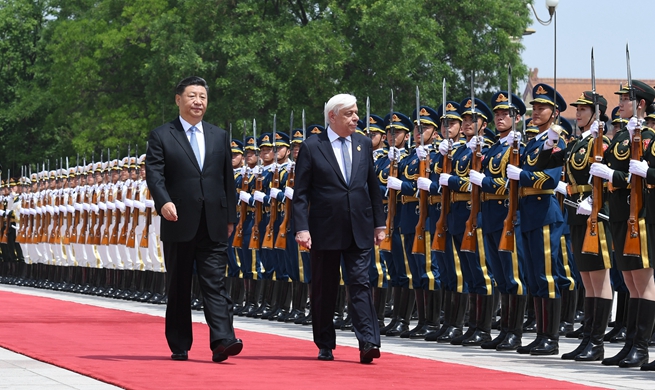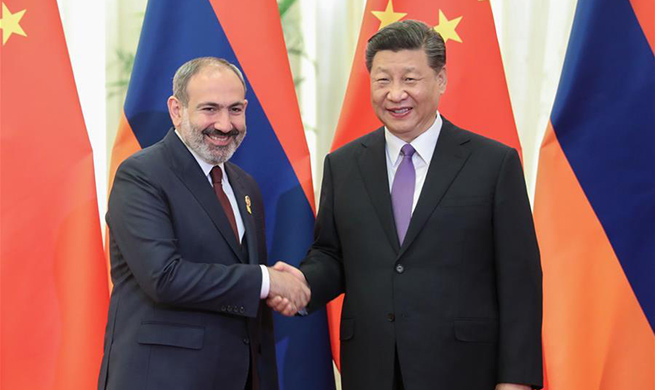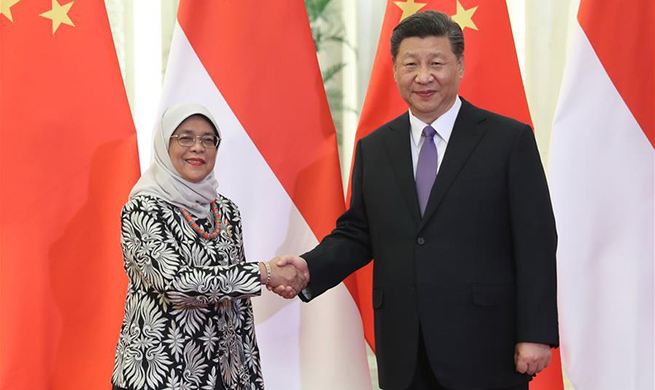WASHINGTON, May 9 (Xinhua) -- Scientists at a U.S. research institute have developed an HIV vaccine delivery strategy that enhanced the protective immune response in a preclinical model.
The study published on Thursday in the journal Cell showed that delivering HIV vaccine in small doses over multiple days produced stronger immune response than administering it all at once.
HIV is a crafty opponent with decoy sites on its outer protein shell to confuse the immune system and nullify the vaccines.
The new strategy hinges on an antibody refinement mechanism in the body. Immune cells that make antibodies usually move to lymph nodes where they are selected for survival, leading to cells that make the most powerful antibodies for further rounds of refinement, according to the study.
"It's like physical training. You start off weak and then keep going back to the gym to get stronger," said Kimberly Cirelli, a postdoctoral researcher at La Jolla Institute for Immunology and first author of the study.
The researchers tested three immunization strategies: a traditional one that is delivered with one big shot, a time-release pill slowly delivered and an escalating dose strategy in which rhesus monkeys were given partial doses every other day for 12 days.
They found that the traditional vaccine led to a predictably "lousy" immune response dominated by non-neutralizing antibodies, while the two slow release strategies led to more and better antibodies.
The slow release vaccines kept more immune cells activated for longer time, so that those cells have more time to stay at lymph nodes and refine the antibody strength, finally producing the neutralizing antibodies that could bind to effective parts of HIV's structure.
The study showed that changing a vaccine's delivery, not the vaccine itself, could have dramatic results on its success.
The researchers are now planning to make the delivery methods practical for clinical use around the world.

















